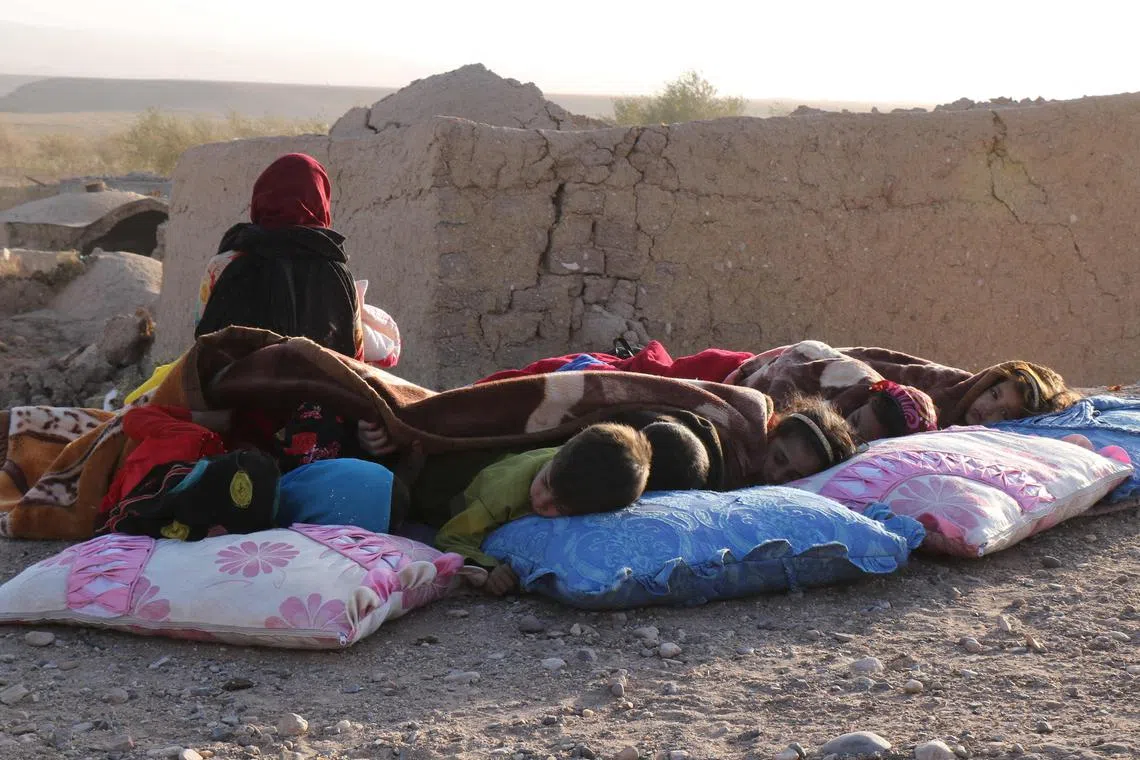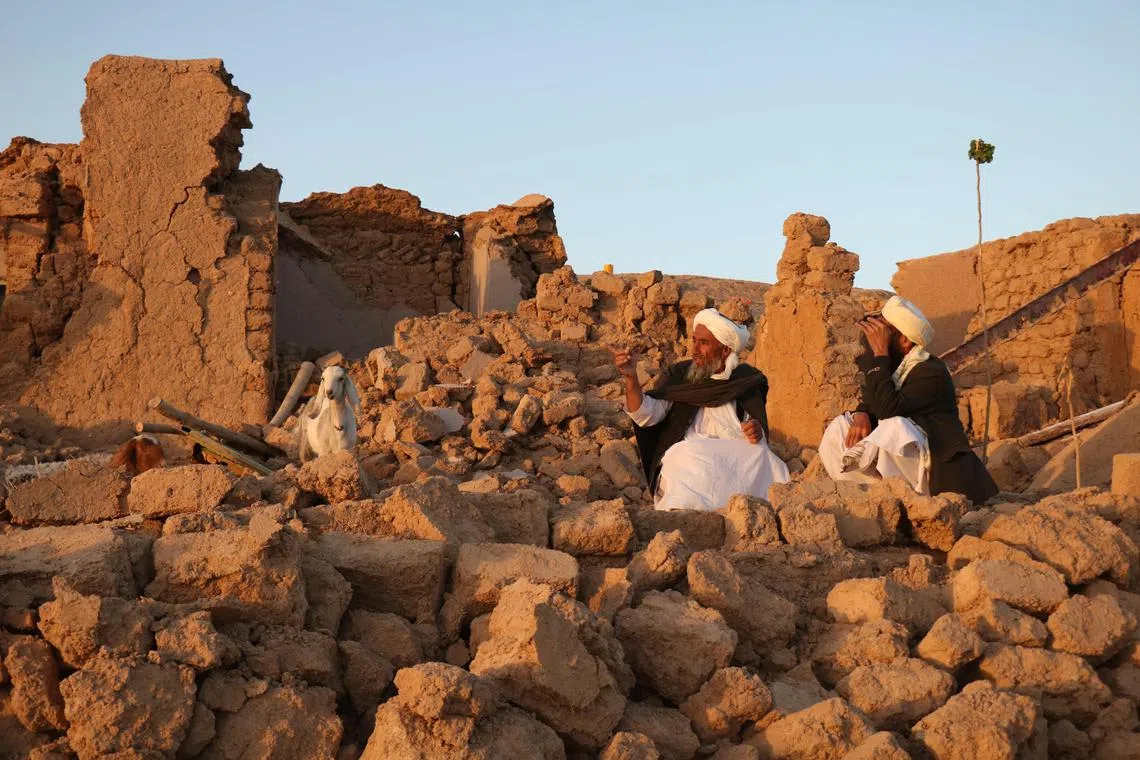Death toll from Afghanistan earthquakes jumps to more than 2,000
Sign up now: Get insights on Asia's fast-moving developments
Follow topic:
KABUL – A series of powerful earthquakes in western Afghanistan have killed more than 2,000 people, the Taliban administration said on Sunday.
Bodies continue to be pulled from demolished villages and buried in mass graves.
The death toll from Saturday’s quakes
More than 1,300 homes were toppled when a magnitude-6.3 quake jolted hard-to-reach areas around 40km north-west of the provincial capital of Herat, according to officials. There were at least eight aftershocks.
The tremors were the deadliest in years in the quake-prone country.
The United States Geological Survey said one further aftershock of magnitude 4.2 hit the same area at around 7am on Sunday.
Disaster management ministry spokesman Mullah Janan Sayeq said the nation “witnessed an unprecedented earthquake”, putting the number of dead at 2,053 across 13 villages at around mid-day on Sunday.

Children resting beside damaged houses after an earthquake in Herat, Afghanistan, on Oct 7.
PHOTO: AFP
“For the treatment of the victims of the incident, we are doing our best,” he told reporters in Kabul.
He also gave a figure of more than 9,000 injured but later retracted that, saying it referred to the number of residents in the affected area.
More than 200 dead had been taken to different hospitals, a Herat health department official who identified himself as Dr Danish told Reuters, adding that most of them were women and children.
Bodies were “taken to several places – military bases, hospitals”, Dr Danish said.
The quakes caused panic in Herat, Ms Naseema, a resident, said on Saturday.
“People left their houses, we all are on the streets,” she wrote in a text message to Reuters, adding that the city was feeling follow-on tremors.
In rural Zinda Jan district, dozens of homes were reduced to jumbles of broken masonry, where makeshift rescue teams dug trenches in the hope of unearthing survivors.
‘Everything turned to sand’
In the district’s Sarbuland village, an AFP reporter saw homes ruined near the epicentre of the quakes, which shook the area for more than five hours.
Gutted homes showed personal belongings flapping in the harsh wind, as women and children lingered out in the open, preparing to spend the night under an open sky.
“In the very first shake, all the houses collapsed,” said 42-year-old Bashir Ahmad.
“Those who were inside the houses were buried,” he added. “There are families we have heard no news from.”

People affected by the earthquakes waiting for relief in Herat, Afghanistan, on Saturday.
PHOTO: AFP
Mr Nek Mohammad told AFP he was at work when the first quake struck at around 11am on Saturday.
“We came home and saw that actually there was nothing left. Everything had turned to sand,” said the 32-year-old.
“So far, we have nothing. No blankets or anything else. We are here left out at night with our martyrs,” he added as darkness began to fall.
Casualties set to rise
Most rural homes in Afghanistan are made of sun-fired mud bricks built around wooden support poles, with little in the way of modern steel reinforcement.
Multi-generational families generally live under the same roof, meaning disasters like Saturday’s quake can devastate local communities.
In Herat city, residents fled their homes and schools, while hospitals and offices were evacuated when the first quake was felt. There were few reports of casualties in the metropolitan area.
Afghanistan is already suffering in the grip of a dire humanitarian crisis, with widespread withdrawal of foreign aid following the Taliban’s return to power in 2021.
Herat province is home to some 1.9 million people and borders Iran.
The area has been hit by a years-long drought that has crippled many already hardscrabble agricultural communities.
Afghanistan is frequently hit by quakes, especially in the Hindu Kush mountain range, which lies near the junction of the Eurasian and Indian tectonic plates.
Over 1,000 people were killed and tens of thousands left homeless in June 2022 after a magnitude-5.9 quake struck the impoverished eastern province of Paktika.
“The Herat earthquake is worse than the eastern earthquake that happened last year,” said Mr Sayeeq, the disaster agency spokesman.
“Not only by the magnitude and depth, but also more areas are affected and destroyed.” REUTERS, AFP

